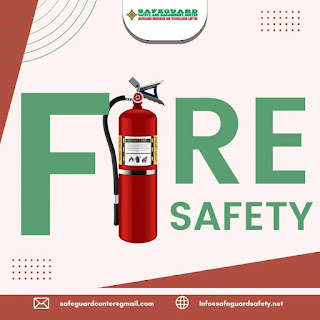Fire Safety Training for Schools and Educational Institutions in Nigeria
Schools and educational institutions play a crucial role in shaping the future of Nigeria by nurturing young minds and preparing them for success. However, ensuring the safety and well-being of students, teachers, and staff is paramount. Fire safety training is an essential component of creating a secure learning environment, and it is imperative for schools in Nigeria to prioritise this aspect of safety. In this article, we will explore the importance of fire safety training for schools and educational institutions in Nigeria, along with the significance of first aid certification in nigeria.
Understanding the Importance of Fire Safety Training
Fire safety training equips individuals with the knowledge and skills necessary to prevent fires, respond effectively in the event of a fire emergency, and evacuate safely. In the context of schools and educational institutions, where large numbers of students and staff congregate daily, fire safety training is critical for ensuring the safety of everyone on the premises. By providing comprehensive fire safety training, schools can minimise the risk of fire incidents and mitigate the potential consequences.
First Aid Certification in Nigeria: A Fundamental Requirement
In addition to fire safety training, first aid certification is another fundamental aspect of ensuring the safety and well-being of individuals in schools and educational institutions. First aid certification equips individuals with the ability to provide immediate medical assistance to those in need, whether due to injuries sustained during a fire emergency or other accidents and medical emergencies. By obtaining first aid training in nigeria, school staff members become valuable assets in maintaining a safe and supportive learning environment.
First Aid Training in Nigeria: Empowering School Communities
First aid training goes beyond acquiring basic medical skills; it fosters a culture of preparedness, empathy, and responsibility within school communities. In Nigeria, where access to professional medical services may be limited in certain areas, the ability to administer first aid can make a significant difference in saving lives and minimising the severity of injuries. By investing in first aid training for teachers, administrative staff, and even students, schools empower their communities to respond effectively to emergencies.
Implementing Fire Safety Training Programs
Schools and educational institutions can implement fire safety training programs tailored to their specific needs and circumstances. These programs may include:
Fire Drills and Evacuation Procedures: Conducting regular fire drills enables students and staff to practise evacuation procedures and familiarise themselves with emergency exits and assembly points.
Fire Safety Education: Providing educational sessions on fire safety topics such as fire prevention, recognizing fire hazards, and using fire extinguishers safely enhances awareness and preparedness among students and staff.
Emergency Response Plans: Developing comprehensive emergency response plans that outline roles and responsibilities, communication protocols, and evacuation procedures ensures a coordinated and effective response in the event of a fire emergency.
Collaboration with Local Authorities and Fire Departments
Schools and educational institutions should collaborate with local authorities and fire departments to enhance their fire safety preparedness. Fire departments can provide guidance on fire safety best practices, conduct inspections to identify potential hazards, and offer training sessions on fire prevention and response. Establishing strong partnerships with local authorities fosters a sense of community resilience and support in ensuring the safety of schools and educational institutions.
Conclusion
Fire safety training is a critical component of ensuring the safety and well-being of students, teachers, and staff in schools and educational institutions in Nigeria. By prioritising fire safety training, implementing first aid certification programs, and collaborating with local authorities and fire departments, schools can create safer learning environments and mitigate the risks associated with fire emergencies. Investing in fire safety and first aid courses in nigeria not only protects lives but also instil a culture of preparedness, responsibility, and resilience within school communities. In a rapidly evolving world, fire safety training remains an indispensable aspect of promoting safety and security in educational settings across Nigeria.


Comments
Post a Comment